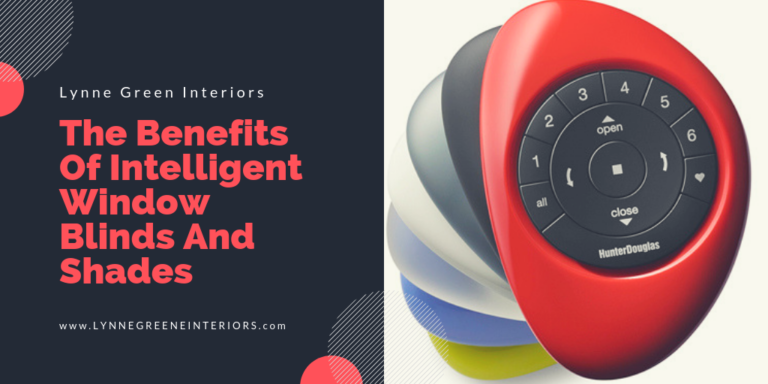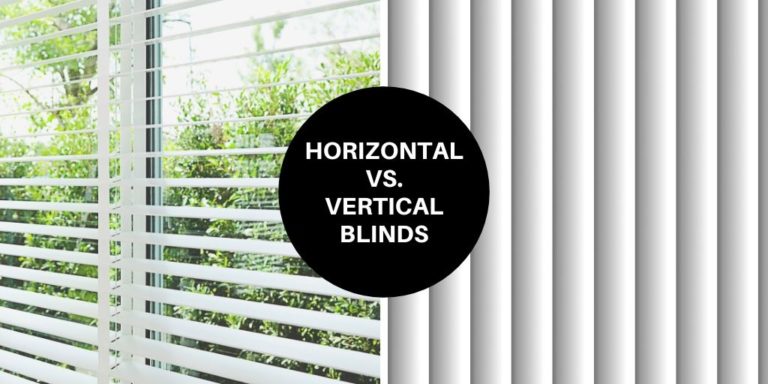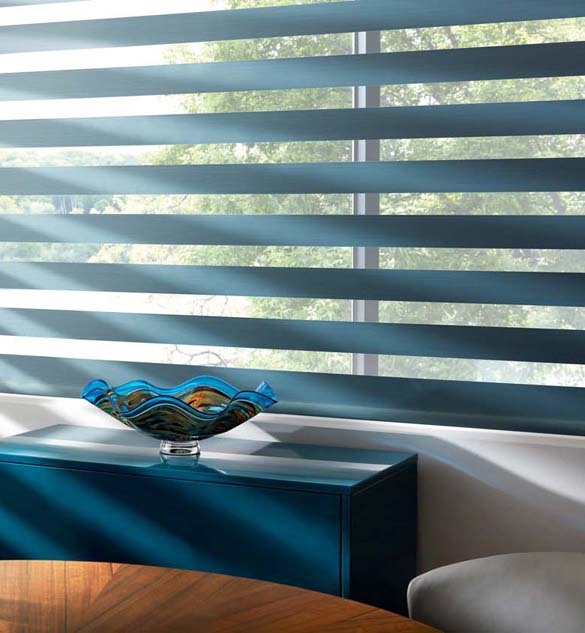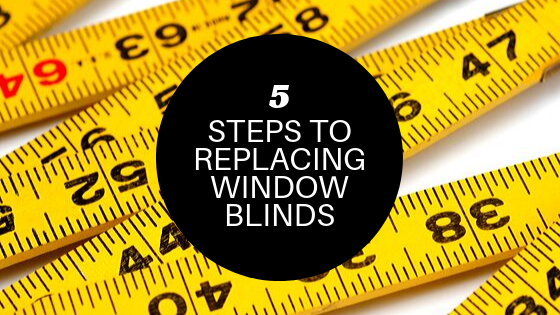Pros And Cons Of Window Blind Materials
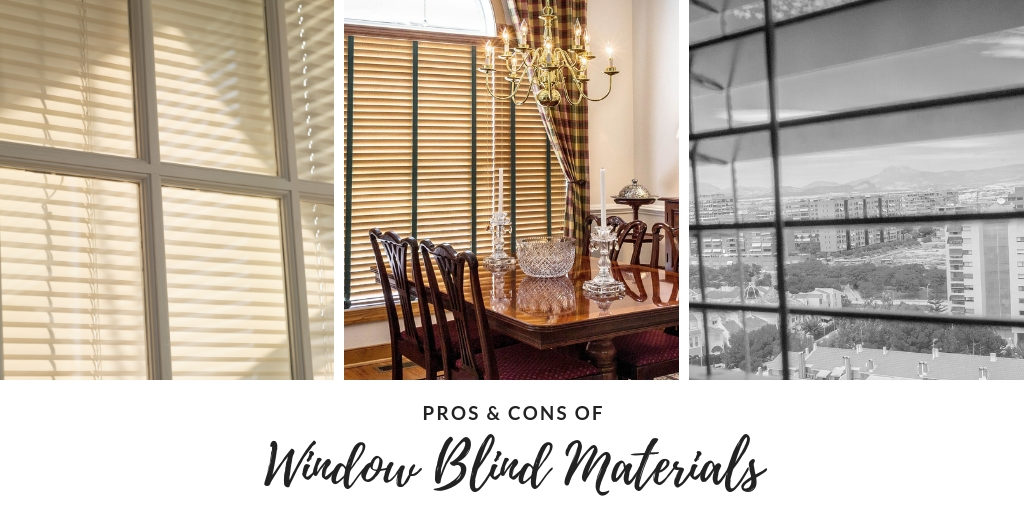
We all typically think curtains first when deciding how to outfit our windows. We ponder which material we like most, which color and style. One feature that can often be forgotten is your window blinds. Cracked, broken or bent window blinds can be an eye sore, but can also effect the functionality of the blind itself. Keeping that sunlight out early in the morning can be crucial to sleeping in peacefully, and properly allowing light in can significantly reduce glare on television and computer screens. Choosing the right window blind material can add to the aesthetic of the room and prove to be the best material for your household. Below are some pros and cons of window blind materials.
Wood Blinds
Natural tones can add an earthy, warm feel to your household. Matching your furniture to the right window blind material and color can help fill out your home’s theme. Wood is also stronger than the thinner, plastic window blinds, which may save you money in the long run. They offer an elegant option that can be used in almost any home’s interior decor. The downside to these blinds revolve around maintenance. As the stain or paint wears off, you may find yourself doing touch ups. You also need to clean wood with specific chemicals, while plastic and metal can be cleaned with almost anything.
Plastic Blinds
Variety and price are two words that go hand in hand with plastic blinds. If you are a new home owner, rental property owner, or even someone who has pets that like to play with the blinds, plastic blinds can offer an affordable option. While they do make thicker, more intricately designed plastic blinds, you will find that the material is cheaper across the board from its wooden and metal counterparts. The disadvantage plastic blinds involve the quality of build and negative impact on the environment if not properly disposed. Plastic blinds are also more transparent, which may not block out the sun as well as wooden or metal blinds.
Metal Blinds
If you want sturdy, durable, long lasting blinds, metal blinds are the way to go. Aluminum is typically the alloy used, which is an extremely light and versatile material that does not rust easily. Metal can absorb far more impact, so replacement blinds are often unnecessary with thicker vane, or size, blinds. On the other hand, these blinds are often louder than other options. A quiet afternoon can easily be interrupted by the sound of aluminum clanking around when the door is opened or a window is cracked to let the breeze in. There are also problems with bending in thinner, less expensive vanes of these blinds.
Wrap Up Of Pros And Cons Of Window Blind Materials
Properly outfitting your windows can help you regulate temperature, lighting and the theme of your home. It is helpful to be aware of the different options available, so you can choose which is right for you and your home. While there are certainly more pros and cons for every material, being aware of them will help you make smarter buying decisions. For more on the pros and cons of window blind materials, please reach out to our team. We are always happy to help.


